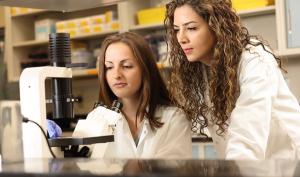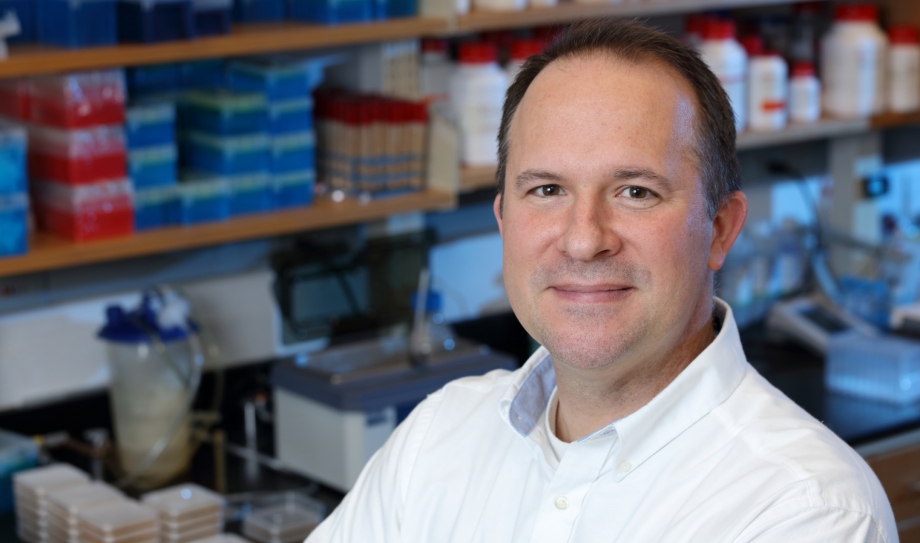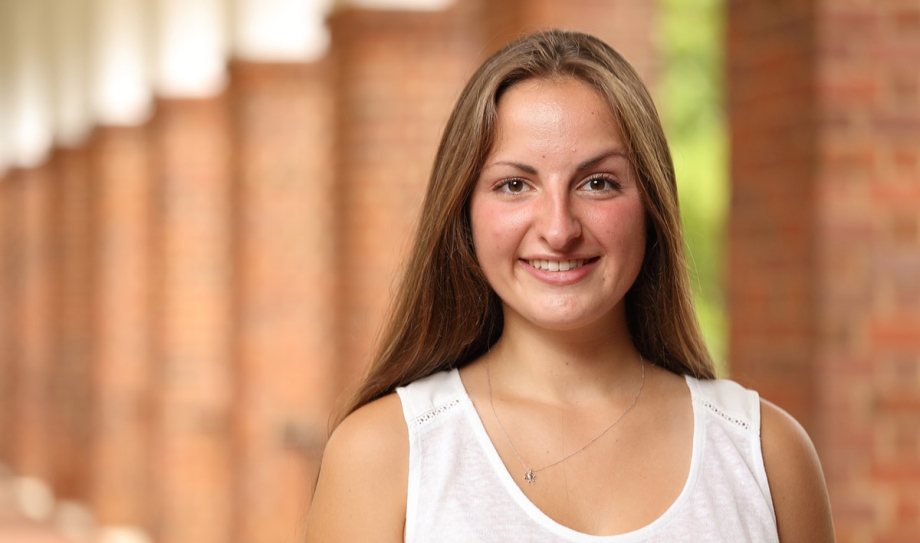
For years, research in maternal and neonatal immunology has been slowed by the challenges of conducting research on pregnant women and newborns, as well as a lack of suitable animal models.
For third year graduate student Remziye Erdogan, mathematical modeling, used along with state-of-the-art high-throughput experimental approaches, represents a way through this impasse. Erdogan is a Ph.D. student at the University of Virginia School of Engineering and Applied Science and a member of the Systems Immunology Laboratory led by Sepideh Dolatshahi, an assistant professor in the Department of Biomedical Engineering.
“Physicians have just begun vaccinating pregnant women as a way to strengthen the immune systems of their newborns,” said Erdogan. “If we could model the transfer of protective antibodies from mother to fetus, we could more rapidly fine tune this approach to better protect newborns from infection.”
When Erdogan learned last spring that the biomedical engineering department had launched the Systems and Biomolecular Data Science Training Program designed to immerse students in the techniques of systems biology, she jumped at the chance to apply.
“Biology has become a massive data science,” said Jason Papin, co-director of the new Systems and Biomolecular Data Science Training Program and Harrison Distinguished Teaching Professor of Biomedical Engineering. The program is funded by a five-year Institutional National Research Service Award (T32) from the National Institutes of Health.
“Researchers must have the skills and insights to manage the massive amounts of data we’re generating, combine different types of data in a coherent way, and master the various modeling approaches needed to understand biological processes and identify data that is predictive of a particular disease or the effectiveness of a therapy,” Papin said.
Employers are now paying a premium for researchers who combine systems biology and data science with experimental methods. “The opportunities for students with this background are virtually unlimited,” he said.

Papin and the grant’s co-principal investigator Kevin Janes, John Marshall Money Professor of Biomedical Engineering, structured the program to ensure students are well grounded in both domains. They begin the year-long experience with an 80-hour research immersion in the laboratory of a co-mentor whose work complements their own.
“We want students to experience different ways to approach research questions as well as gain new skills,” Papin said. “Our goal is to open their world a bit.”
For Erdogan, whose background in mechanical engineering had already provided a foundation in computation, her stay in UVA's Labor & Delivery Ward under the supervision of Professor Donald Dudley, a member of the Maternal-Fetal Medicine Division in the Department of Obstetrics and Gynecology, was a revelation. “My time working with Dr. Dudley helped me establish strong connections with the Labor & Delivery team and provided access to the patient samples needed to advance our experimental approaches,” Erdogan said.
The combination of customized experiences and broad perspectives also dictates the classroom portion of the training program. Students can tailor their coursework by taking elective courses on such topics as molecular data science and data mining and machine learning, but they all take a course called Quantitative Biological Reasoning taught by Janes, which places modeling and computation in the context of experimental design. Through the use of published papers that are classics in the field, Janes exposes students to the fundamental challenge that any scientist faces: how to select experimental and computational methods that best support the investigation of a given hypothesis.
The course "really gave me a deeper appreciation for the intricacies of experimental design,” she said. “It made me think about my own science in new ways and empowered me to read scientific literature more critically.”
The way Papin and Janes structured the training program also reflects their deep appreciation of the way people learn. They included elements in the training program that support community as well as individual growth. Both faculty members have been recognized as outstanding educators and mentors. Papin won the Robert J. Kadner Award for Outstanding Graduate Teaching, while Janes recently received the School of Medicine’s Research Mentor Award.
In addition to taking a common course, all students join the Systems Biology Journal Club, which meets biweekly, attend monthly collaborative lunches, and participate in a 48-hour hackathon at the end of the year. “Being part of a cohort, bouncing ideas off peers who share the same interests and passions, builds excitement and encourages creativity,” Papin said. “Equally important, it underscores the essential lesson that collaboration is a necessary part of systems biology and helps them build a network of collaborators.”
Erdogan said, “The expertise needed to address a complex subject like maternal-neonatal immunology is too vast for any single person to possess. Collaboration—and learning to be a good collaborator—will be a critical part of my success.”
